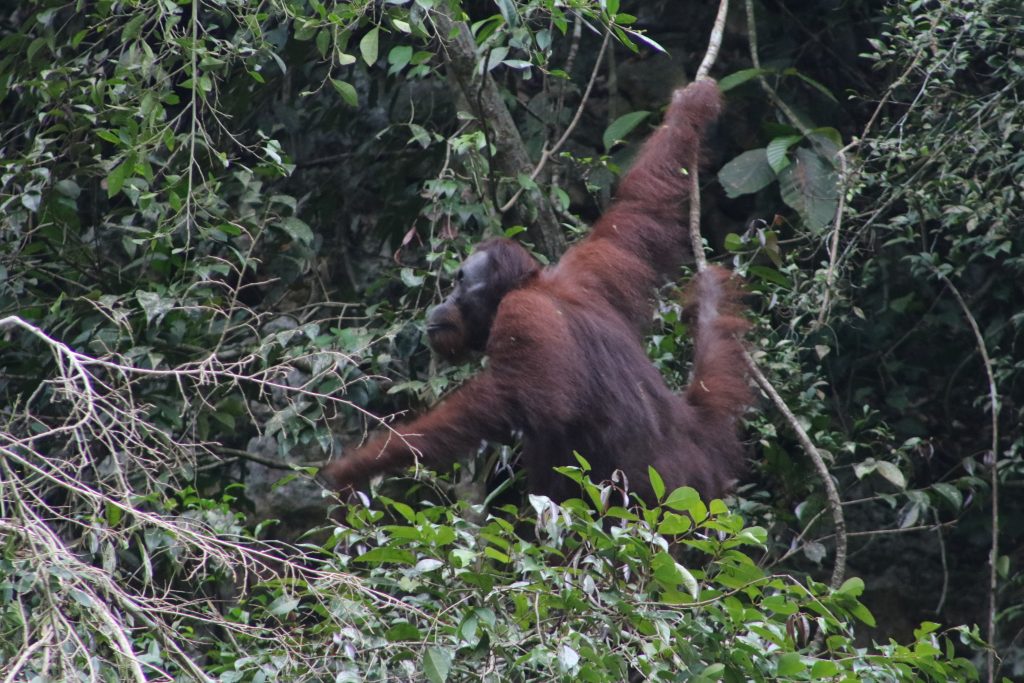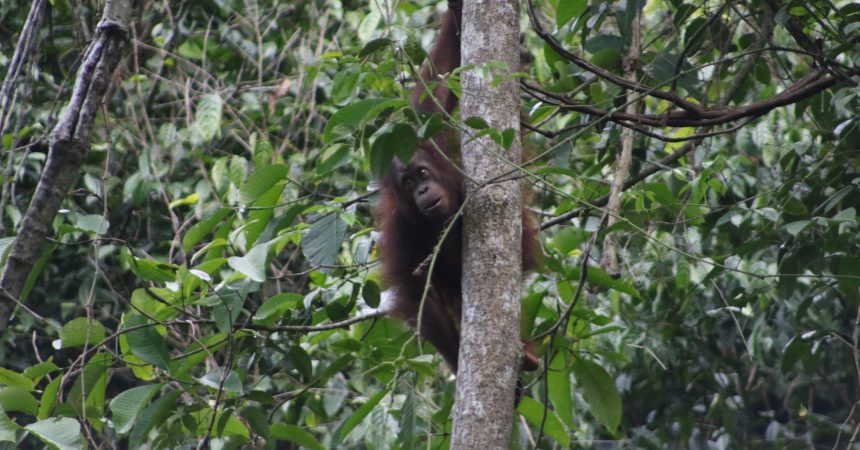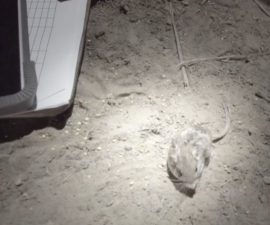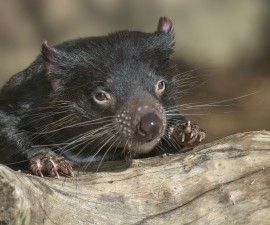This past July, I had an opportunity of a lifetime—traveling to Borneo on a Project Dragonfly Earth Expedition as part of the Applied Inquiry graduate program through San Diego Zoo Global Institute for Conservation Research and Miami University in Ohio. While there, I learned about and participated in community-based conservation efforts and field research studies for numerous endemic species.

A Female orangutan maneuvers through the forest in search of food in Sabah, Malaysia. (Photo: Yeleny Smith)
I was beyond excited to travel to what felt like would be another world. Adding to my excitement is that it would take me to the homeland of my favorite animal, the Bornean orangutan. Preparing for my departure, I began to read that this species had just been classified as a “Critically Endangered” by the International Union for the Conservation of Nature Red List of Threatened Species. My heart sank as I realized that this might be my one and only time to see this magnificent creature in the wild.
Flying into Borneo, I expected to see a lot of beautiful green stuff below, and I did. However, it was not native green trees I saw, but rather an exotic plant called the oil palm. I couldn’t believe how many oil palms there were! There were vast plantations of them that kept going for miles and miles as we traveled by van to our homestay location in Sabah, Malaysia. I couldn’t help but shed a tear thinking about the precious forest land taken from the orangutans because of the unsustainable growing and production of palm oil of the past.
Palm oil is an ingredient found in about half of all products today, from food to cosmetics. It is an ingredient that cannot be avoided or boycotted, but rather one that needs to be better regulated by those who grow it and produce it. As consumers we need to push companies for better standards of practice. Companies that are certified by the Roundtable on Sustainable Palm Oil (RSPO) and show this certification on their packaging need to have our support, as they have promised not to use forested land for planting, as well as helping to build wildlife corridors, and aiding with reforestation efforts.
Those companies that are not certified by RSPO continue to burn rain forest and peatland to make more land for more palm oil plantations, further destroying and damaging orangutan habitat, polluting the air, and contributing to global climate change. Other certification mechanisms, such as the one developed by the Palm Oil Innovation Group, build upon the RSPO’s standards and are also beneficial to orangutans.
So for the love of all the orangutans I saw being wild and free in Borneo (and for those that I didn’t) I have been asking family, friends, coworkers, and now YOU to be responsible consumers this Halloween season and purchase orangutan-friendly candy. Check the package for RSPO certification, and support those companies and those working towards RSPO certification. I am extremely hopeful that we can secure a future for the largest arboreal mammal on the planet, because we—all of us—have the power in the palm of our hand through “purchase power.”
Yeleny Smith is a keeper at the San Diego Zoo.
(All photos by Yeleny Smith)





